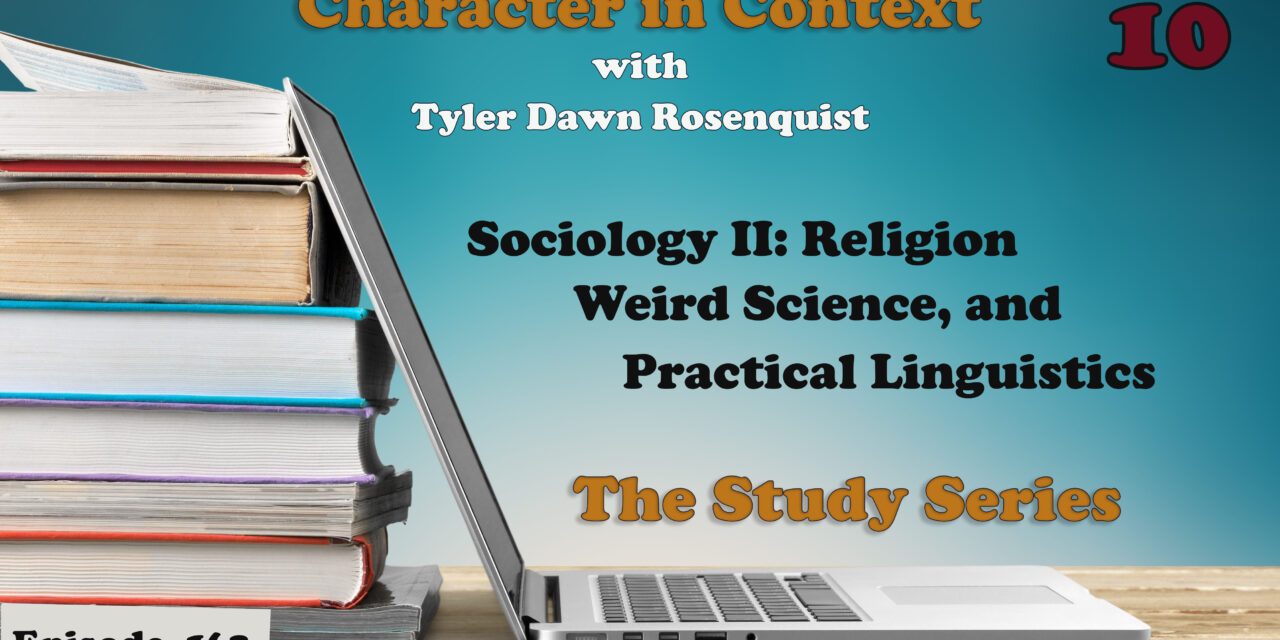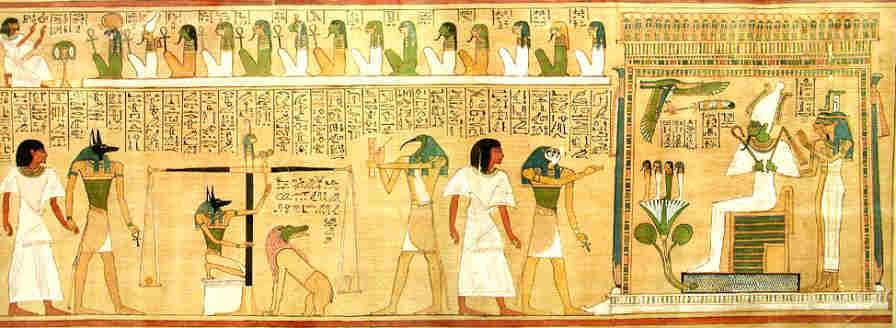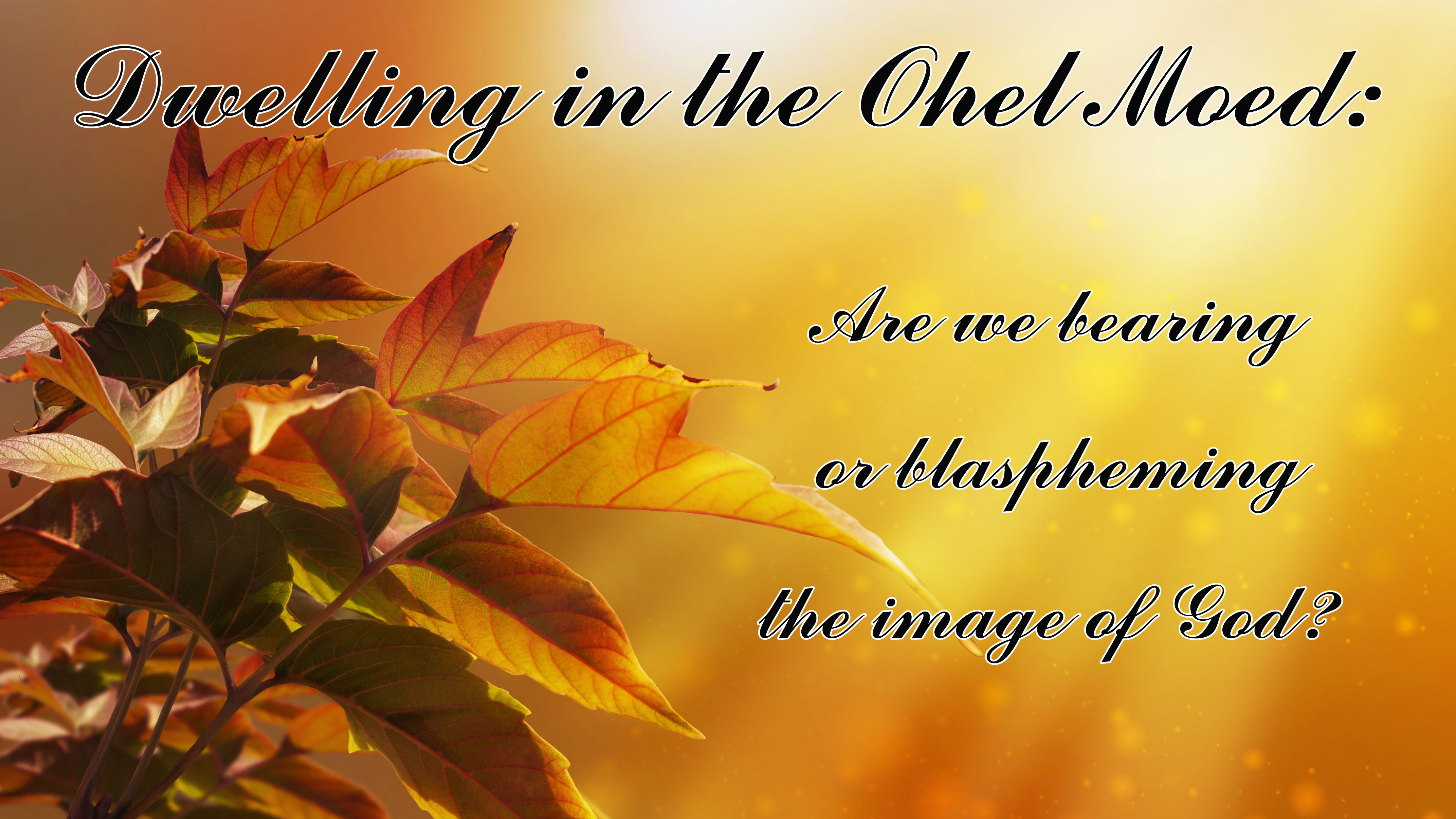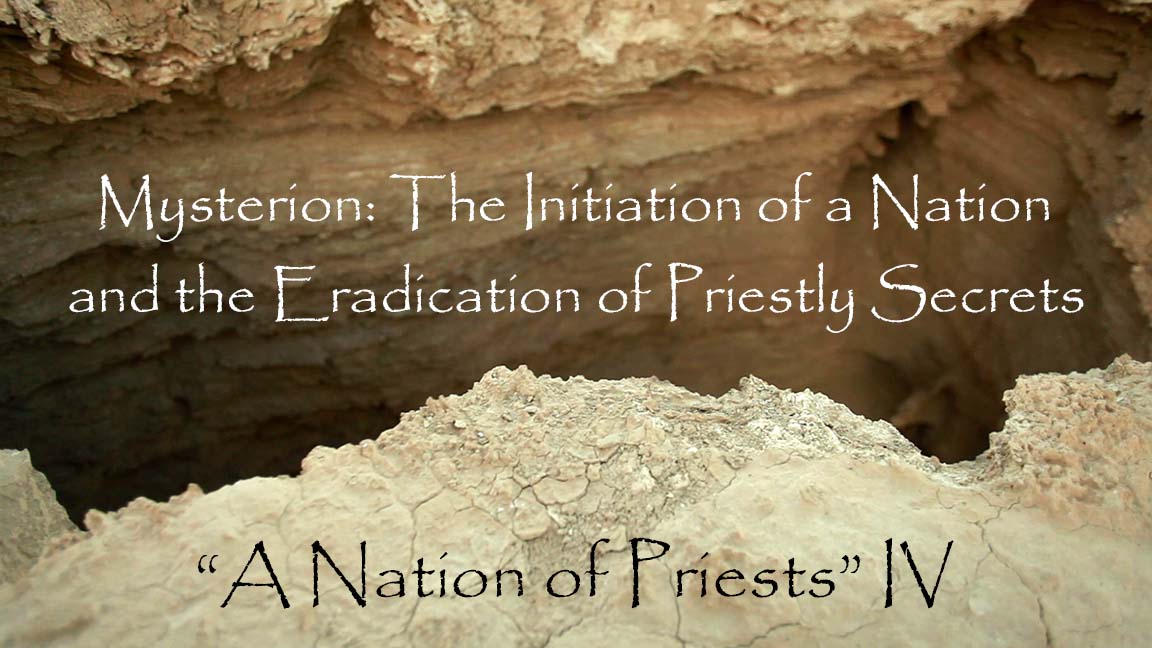You might be wondering why we need to talk about religion when we are already studying the Bible—but religion in the ancient world was nothing like what we experience today. There was no separation between “church and state” or church and anything. Religion was everything and everything was religious. We’re going to tie ancient religion into their pre-scientific beliefs, and we are also going to talk about some of the wrong ways to treat ancient words in modern interpretations.
If you can’t see the podcast player, click here.
Hi, I am Tyler Dawn Rosenquist and welcome to Character in Context, where I usually teach the historical and ancient sociological context of Scripture with an eye to developing the character of the Messiah. But not right now, right now I am doing a series about how to not waste your time with bad study practices, bad resources, and just the general confusion that I faced when I started studying the Bible and was trying to figure out what to do and whose books I should read. Bottom line, I read a lot of nonsense and spent a ton of money on it. I am going to give you some basics on how to avoid a lot of the pitfalls, save money, maximize your time and effort, and get the most out of what you are doing. So, what we are doing here is getting you introduced to summaries of what is out there to study and things you should know about. Master book list can be found here and I will add to it as needed.
Now, you might be wondering why it is necessary to talk about religion as though we don’t know what that is but the truth is that how modern westerners think of religion is absolutely nothing like anyone in the Bible would have seen it. I mean, not the pagans and not the worshipers of Yahweh either. In fact, we can’t understand much of anything in the ancient world without having a pretty good handle on their religious lives. If we don’t, we will find ourselves making assumptions that seem absolutely normal to us but would have sounded insane to them. In the western world, we claim to cherish a separation between church and state—except for when we want the ten commandments in courthouses and Christian prayer in school and creationism taught in the classroom. What we are truly interested in is having freedom from everyone else’s religion while not quite understanding why they feel the same way about wanting freedom from ours. And just as a funny aside here, the Ten Commandments are actually not compatible with the Constitution and especially the Bill of Rights. Right off, the first commandment stands at odds with freedom of religion because Sinai said there was no freedom of religion. Ditto for the second, and third commandments. And when was the last time someone actually went to jail for adultery? Guess what? It isn’t illegal! I am going to link this great article that Carmen Imes wrote about this conundrum a while back.
But in the ancient world, there was no separation of religion and state, or religion and science, or religion and shopping, or religion and absolutely anything. Everything was religious and religion was everything, and it didn’t matter if you were Jew or Gentile. Secular isn’t a word that they would have understood and there was no one day to focus on religion—even the Sabbath was a day of rest, not THE one and only focus of worship. Day in and day out, ancient people were focused on keeping their gods happy and well cared for. Offending them meant famine, sterility of people and crops, drought, natural disasters, defeat in battle—really anything you can think of. There was no part of life that the gods weren’t responsible for and deeply involved in. It was a world of belief in fate and where science was unnecessary because they depended on what they thought they were seeing with their own two eyes and behind it all were the gods making everything work. Science is the way of explaining the operations of the universe and everything in it through observation and experimentation, however, when you think that there are gods doing everything—well, what’s the point of looking more closely into it?
The rain cycle with evaporation and condensation and precipitation wasn’t being taught in Canaanite schools because Ba’al Hadad and his exploits as the storm god were being taught around the campfires. They accepted that such things were out of control and crafted stories to explain the phenomena, and they lived in ritualistic ways to try to make sure that the gods would continue to care for them. Science, if anything, was the absolute opposite of ancient religion. Someone, and not something, was responsible for each cosmic functionality of life as they knew it. When it is someone, and they are divine, all you have to worry about is how to keep them happy and not to figure out exactly how it works.
As for the entire ancient world’s belief in a flat earth and, no, Nimrod didn’t make that up. It was what everyone believed based upon what they could see with their own eyes and what made sense to them. As to what organs were responsible for different emotions and thoughts, they based their beliefs on either how things felt or pure guesswork and it wasn’t until about 500 BCE that the Greeks figured out what brains were for. I mean, give them some credit, I know some folks who still haven’t figured it out! And God worked through those beliefs to teach them about Himself. As I tell the kids on my other radio show, the Bible isn’t Abraham’s story, or David’s or Moses’—it’s God’s story to help us understand and love Him. And it also isn’t a science book—and if it was, what science would God reveal to them? How we see things now? Or a hundred or a thousand years ago? Or a hundred years from now? Or, even worse, what He actually knows about how things work—things that we could never hope to understand. Nope, best to always talk to everyone wherever it is they are and focus on the important stuff. Which is not science. And what is important? Who is Yahweh? Who is He to us? Who are we to Him? How is He different from every other god worshiped on the earth? And why can we trust Him? And of course, we learn about His desire to save us from sin and death and reinstitute His Kingdom fully on earth under the reign of the Messiah. Next to that, who cares how rain works anyway?
Life in the ancient world, whether Jewish or Pagan life, was an act of worship and a reflection of the deities one served. Now, the big city gods like Marduk, Ishtar, Baal, El, Zeus, Jupiter and many more—they were the responsibility of the priests. Cities would have patron gods and it was the job of the Temple staff (not too different from a palace staff) to keep them fat and happy because they weren’t particularly competent or bright and if they had to do their jobs and get themselves food, things could go terribly wrong and it was the belief of the pagan nations that humans were created mostly as slaves to serve the needs of the gods after they got tired of taking care of themselves. These gods were supremely pathetic, and they had every fault that humans have as well as a few more. I personally can’t think of anything worse than serving gods who are anything like humans. Just no. We’re bad enough without powers.
The ancient world was almost entirely polytheistic and I say almost entirely because evidently Egypt toyed with monotheism during one dynasty and Persia developed Zoroastrianism which is a dualistic monotheism. But mostly, they just had a whole bunch of gods, each with the job of making a certain thing in the heavens or on earth working properly. And by monotheism, which we are most familiar with, I mean the worship of one God while denying the existence of any others. Now, what was Israel? That’s harder to explain and scholars are split. Because there were two more choices—monolatry and henotheism. You’ve probably noticed that the Torah and the Prophets really do not deny the existence of other gods which, of course, leads to much debate as to why. And it is a really interesting debate. The plagues of Exodus, for example, are predicated upon being a judgment of Egypt’s gods. Not a proof that they aren’t real but as a judgment against them. When we look at Deutero-Isaiah (Isaiah 40-55), we see Yahweh taking the other gods to court and demanding answers from them. And the first commandment doesn’t deny the existence of other gods—it just forbids their worship.
So, here is the crux of the dilemma. Israel was certainly not monotheistic before the end of the Babylonian exile. They were constantly worshiping other gods and goddesses alongside Yahweh, although He had supremacy. There is a pottery shard dated to the monarchy that states Yahweh’s consort is Asherah of the Canaanites (a mother goddess)—and she might have been the Queen of Heaven mentioned by Ezekiel or perhaps it was Ishtar. But we also see women weeping for Tammuz. When David is on the run from Saul, his wife Michal places a household idol in their bed to make it look like he was still there. In the wilderness, the Israelites bound themselves to Ba’al Peor. And these aren’t isolated incidents by a long shot because the sacred groves and high places are mentioned throughout the monarchy accounts. Solomon really got the ball rolling when he made temples for his foreign wives to worship their gods in and he joined them in his old age.
So, monolatry is what Mormons practice—the belief in a great many gods but only being permitted to worship one. Every faithful believer on earth worships Elohim (who is a flesh and bone physical male being), aka “Heavenly Father”, but the faithful will achieve exaltation, become gods and will rule over their own planets. Henotheism, on the other hand, also involves the belief in many gods however, one rules supreme at the top of the pyramid. So, the Bible is written from a monolatrous standpoint that doesn’t deny the existence of other divine beings but forbids the worship of any but Yahweh, upon the understanding that the nations were given over to these other divine beings but Israel was set apart for Yahweh and owed him their exclusive worship. When they were doing well, they were practicing monolatry, saying, “Yeah there are other gods but they aren’t ours and we only worship Yahweh because He is the King of kings and Lord of lords.” When they fell into rebellion, they were practicing henotheism, worshiping Yahweh and a lot of other gods as well.
After the exile, at some point, they became monotheists however, when we read sectarian writings like Enoch, we see that they traded out henotheism and monolatry for a very imaginative form of angelology—where all the cosmic functions that were once carried out by a myriad of gods and goddesses are now carried out by angels. It is literally almost exactly the same thing but a movement in the right direction. I do not know when it was that angels took on the role of being messengers and worshipers and the Jews realized that Yahweh is the master of everything and doesn’t need angels or other gods to carry out running and managing the world. But, as with their science views that we have grown out of and see as Yahweh being generous and not trying to correct, we see the same things with the existence of a multitude of other gods. We no longer accept them because we are monotheists. Yahweh used their beliefs in other gods, as He used their pre-scientific beliefs, to turn them into a people completely devoted to Him as the One God. Who has better things to do than to teach science.
Tied to this, and this really helps us understand why the Israelites worshiped the gods of the peoples around them, is the belief in regional gods—a belief that everyone in the ancient world shared. They didn’t believe in a fertility god or goddess with many names depending on where you lived. No siree bob. They believed that Egypt had Hathor and Isis, who were entirely different than the Canaanite Asherah, and the Mesopotamian Inanna. No one believed that these were the same goddess and it wasn’t until the time of the Greeks that they floated the idea that all of the fertility goddesses were simply a manifestation of their Demeter or Aphrodite, depending on what kind of fertility one was referring to (livestock, crops, or human). This was actually a brilliant aspect of Hellenization and how the Greeks really dealt a death blow to a great many local religions. It’s also why people know the names of the Greek gods and goddesses better than anyone else’s!
And so, when you moved to a new area, although you would still believe in the gods you grew up with, you would understand the importance of honoring the local gods who were responsible for everything that happened in that region—which is why they are called regional gods. It’s why Baal Hadad was so popular in Israel because he was responsible for bringing the rain, and Asherah the babies, and Dagon the grain. We see this belief pop up several times in Scripture—the two best known are in 2 Kings 20:28 when the Arameans were a bit unclear on the concept of Yahweh most certainly not being a regional god, “Then the man of God approached and said to the king of Israel, “This is what the Lord says: ‘Because the Arameans have said, “The Lord is a god of the mountains and not a god of the valleys,” I will hand over all this whole huge army to you. Then you will know that I am the Lord.’” Evidently, that was too much of an honor challenge for Yahweh to let slide. And the second is in 2 Kings 17:24-26), “Then the king of Assyria brought people from Babylon, Cuthah, Avva, Hamath, and Sepharvaim and settled them in place of the Israelites in the cities of Samaria. The settlers took possession of Samaria and lived in its cities. When they first lived there, they did not fear the Lord. So the Lord sent lions among them, which killed some of them. The settlers said to the king of Assyria, “The nations that you have deported and placed in the cities of Samaria do not know the requirements of the god of the land. Therefore he has sent lions among them that are killing them because the people don’t know the requirements of the god of the land.”
It might seem silly to us but they couldn’t conceive of a being powerful enough to create the universe and everything in it and run it without a lot of help. Remember that their gods were just like them, only with powers. Not like superhero powers, but with the power to make the things happen that we need to survive. One more aspect of their religion is ancestral gods, or teraphim, which aren’t really gods but ancestors that they believed needed to be cared for after death. I mean, just imagine how hard it would be to break someone of thinking that they need to provide for their parents in the afterlife, right? How would you even begin to accept that they wouldn’t starve if you stopped feeding them? Is it a risk you would even remotely want to take with your dead loved ones? I believe that this is why Rachel stole the idols from her father, and why he was so desperate to get them back. Remember that worship wasn’t what we would always think it would be—at the heart of worship is taking care of something or someone for this or that reason. Gods or dead loved ones—it wouldn’t make a whole lot of difference to ancient people.
Okay, now I want to divert from sociology slightly into the realm of linguistics (which is the study of languages) because this is so badly abused by people who do not study, don’t have degrees, and just go with their gut or by how things sound or mean today and that is absolutely the worst mistake we can make in studying languages—especially in a place like America where we have a billion loan words (give or take) which have changed so much in meaning that we cannot apply modern meanings to ancient concepts. But you can look on YouTube and read memes and google pages that do just that in pursuit of various agendas. Let’s do one that I have never heard from anyone before but I told it to my study buddies as a joke and they were at least polite enough to laugh. The word translated spirit is pneuma. Stoic philosophers equated the pneuma with the soul or the inner spirit but it also is connected to a meaning of breath. But in the Bible it can mean anything from the Holy Spirit, to demons, breath, inclinations, wind, angels, whatever. It’s a big word and we need context to translate it.
But what if someone had an anti-meds agenda, okay—you know, like the people who are saying that if you got the COVID vax that you took the mark of the beast, or are part demon or Nephilim now, or whatever. And they looked in Strong’s Concordance and found out that pneuma means Spirit, like the Holy Spirit. And then, they noticed that pneumonia is very similar. And then, added to that, they realize that antibiotics make pneumonia go away. And so, horrified, they get out their meme generator software and use it to craft a scare story that antibiotics kill the Holy Spirit or at least drive it out of a person’s body. And so therefore, Big Pharma is trying to steal everyone’s salvation—and all because they didn’t understand linguistics and how language actually works. Language is, by its very nature, sociological because communication is everything. It shapes what we know, how we think, the way we will perceive new concepts, and how we interact with one another. Language is incredibly important but it must also be respected and we must not misuse it out of context to suit our agendas. I mean, even if our agendas are worthy, we must still not twist language or especially the Bible, to shortcut our way to the results we desire. Using pneuma and pneumonia in the way I just described would be a great example of what not to do. And it sounds ridiculous and it is but there are people out there who do this, preying on people and terrorizing them. Fear has this way of bypassing our doo-doo detectors—which is why people use it and why memes on social media are such effective propaganda promoters. Make a claim which you don’t have enough space to prove, and people assume it is legit. And they like and share without investigation and oftentimes without even knowing how to investigate such a claim. Just FYI—YouTube and Google are not reliable ways to investigate claims. Don’t believe me? Google holocaust denial one of these days and watch them prove that what happened, didn’t actually happen.
Homophones are another big problem, where people assume that two words are historically linked because they sound the same or share the same root word. Dynamis, pronounced doo-nah-meese despite being transliterated as dynamis, means power and is used of Yeshua/Jesus quite a bit when it talks about Him coming in the power of God, the dynamis. Dynamis is closely related to the words dynamic, dynamo, and dynamite but they do not all mean the same thing. But their meanings are related to one another. But we cannot change one for another otherwise we have Yeshua coming with God’s dynamite, which makes for quite the interesting picture. But if He had done that, He could have taught Peter, Andrew, James, and John a much easier way to go fishing, right? Now, that’s an example of words that sound alike and actually are linked but cannot be used interchangeably. Another example is pharmakeia, which was a technical term in the first century world for the crime of sorcery and especially through the use of poisons for the purpose of murder. It is linked to words like pharma and pharmacy but they are not equivalents, even though you wouldn’t know it from a lot of memes out there. If so, then we would have to look at what medicines were in the ancient world and outlaw them. So, bye-bye herbs and essential oils—you’ve been reclassified as pharmakeia and thus sorcery. You see, it just doesn’t work. But the words still share common roots and foundational meanings.
All that is to bring up a homophone that is really abused out there in religious circles and especially on the internet, with two words that are completely unrelated to one another in any way shape or form except that they sound quite a bit alike and those are Ishtar and Easter. I mean, look at a world map and ask yourself how a word for the Babylonian goddess of war and prostitution, the Queen of Heaven, used in what would become modern day Iraq, got all the way over to western Europe during an age where no one even knew who Ishtar was anymore because her empire had been conquered and disgraced and overrun by the Greek and Scythian armies and replaced with their deities a thousand years earlier? And on top of that, why would that be the word used to describe a Passover-related observance in only three Germanic languages while the rest of the world uses Pascha instead? Including all of the Near and Middle East. This happens all the time—the word beter (pronounced better) means “worse” in Turkish and the same word that means mountain in Japan means pit in Russian. I will link you a great article on that. It isn’t enough for two words to sound alike, they have to be historically linked somehow to be related. And never, I mean, never use the word booger for snot in the UK or in eastern Canada to refer to your friend’s little brother. Just don’t.
And there are similar problems for people who lack understanding of Hebrew who will do some disastrous things with the word et, made from the letters aleph and tav. We’ve run out of time, so I will link an article on that in the transcript as well, by my friend Jonathan Brown. Fortunes and whole new religions have been made from misusing words and we really ought to have more respect for languages!





















